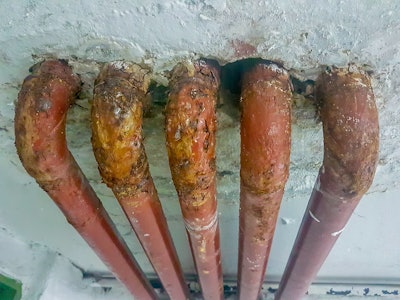
A new federal rule that requires all lead pipes in drinking water systems throughout the U.S. to be replaced within 10 years will come on the heels of $2.6 billion in federal funding.
The funding comes from the $1.2 trillion infrastructure law President Joe Biden signed in 2021. The rule has been a priority for Biden to improve drinking water systems around the country, especially in low-income areas. His administration issued a final rule earlier this month that would replace pipes that extend to an estimated 9 million homes.
The money can be used for identifying and replacing lead pipes, which have been linked to mental and physical development problems in children and can also lead to physical ailments in adults.
The funding will be administered through Drinking Water State Revolving Funds. Nearly half of the money is designated for “disadvantaged communities” as grants. Also, $35 million will be available for competitive grants, which communities around the country can apply for directly through the U.S. Environmental Protection Agency.
“The public health and economic benefits of the final rule are estimated to be up to 13 times greater than the costs, and together with new funding announced today under Biden-Harris Administration’s Bipartisan Infrastructure Law, water systems will be able to accelerate removal of lead pipes and create good-paying local jobs in the process,” according to the EPA.
Projects to replace lead pipes have been occurring across the country due to the infrastructure law, including these that the EPA says are on the way to complying with the rule:
- Milwaukee received $30 million in 2024 to replace 3,400 lead service lines.
- Detroit has received $90 million and will replace more than 8,000 lead service lines this year.
- Erie, Pennsylvania, has received $49 million for the city to replace all lead pipes within five years.
- Denver received $76 million to be on track to replace all lead pipes within a decade.
The infrastructure law calls for allocating $50 billion over five years since the law’s enactment to repair and replace the nation’s deteriorated water and sewer infrastructure. Of that amount, $15 billion is for replacing lead pipes, and another $11.7 billion goes to the revolving fund, which can also be used for lead pipe replacement. The funding is a mixture of grants and low-interest loans.












